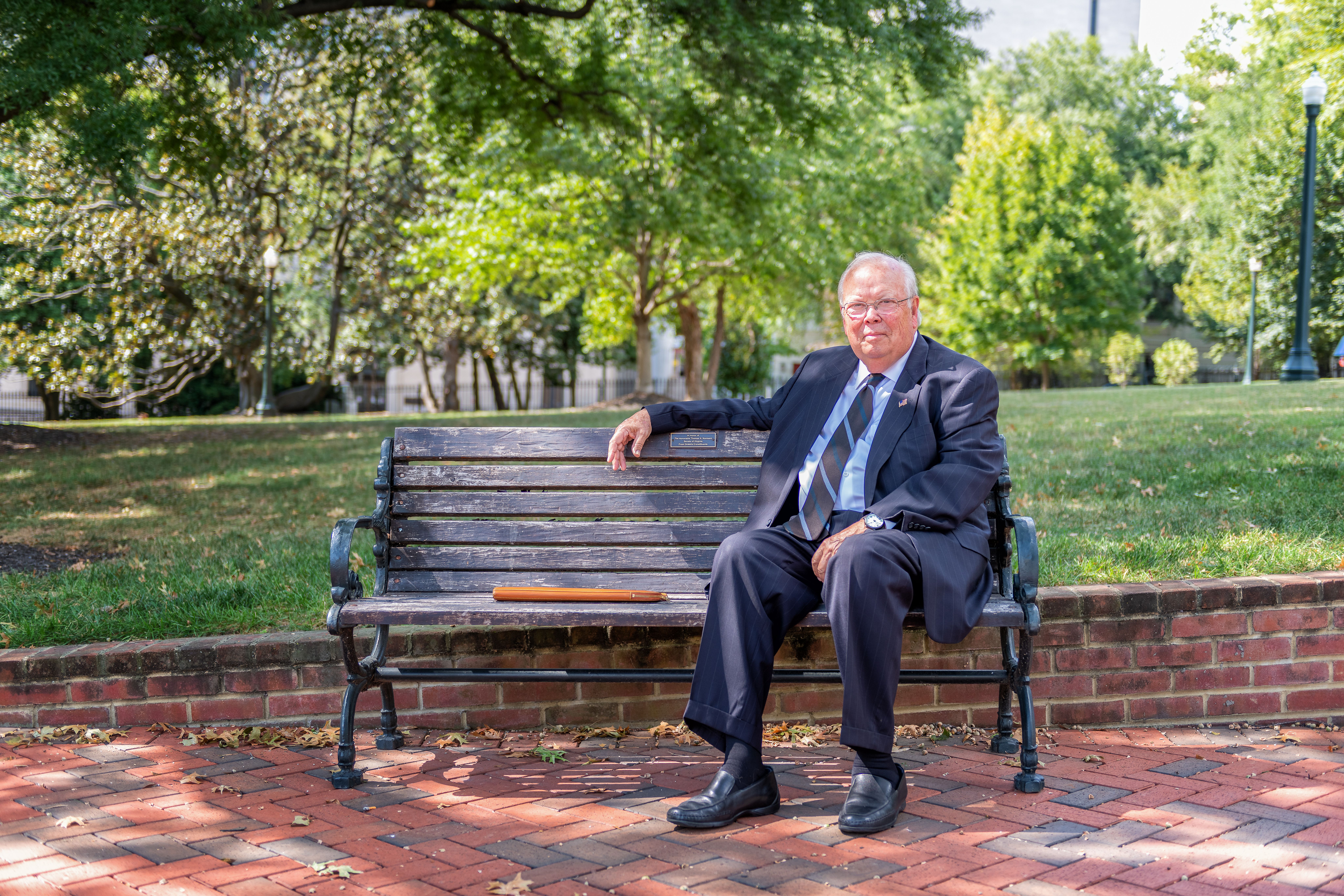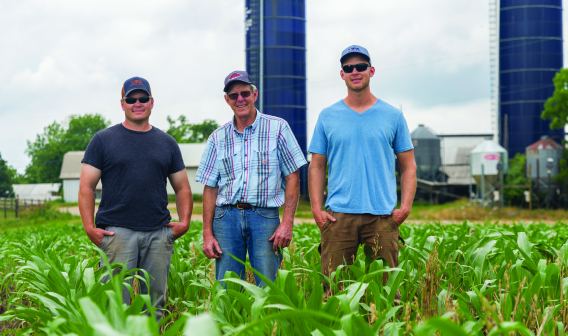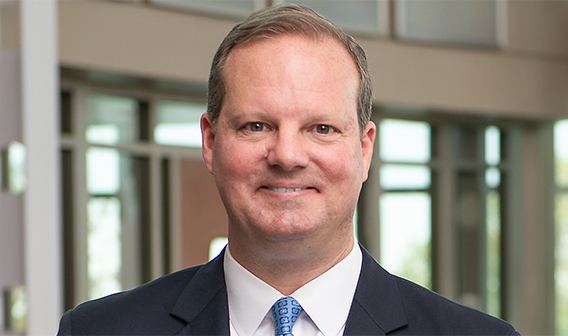Securing Southern Virginia's Future
A Conversation With Ben Davenport
Ben Davenport has been a champion for economic development in rural Virginia for decades. Davenport is chairman of First Piedmont Corporation as well as Davenport Energy. He is vice chairman of the board of GO Virginia and serves on the boards of Mid-Atlantic Broadband Communities Corp., the Virginia Chamber of Commerce, and the Institute for Advanced Learning and Research.
Virginia Economic Review: What drew you to get so involved in championing rural economic development?
Ben Davenport: Around 2000, we began to see a real sea change in manufacturing. The textile industry, the apparel industry, the woodworking industry, the tobacco industry were all being hit hard. It was ironic, but it was fortunate right at that time that the tobacco industry was being attacked by the attorneys general across the United States. And, so, tobacco companies raised the white flag and said, “We’d like to reach an out-of-court decision or settlement with you guys.” And, so, out of that the tobacco companies did a big settlement, with a large amount guaranteed to be paid over the next 25 years.
The General Assembly of Virginia adopted legislation which allocated how the money from the settlement would be spent. Tobacco was primarily raised in Southside and Southwest Virginia, which coincidentally was the area that had been hardest hit with the exodus of manufacturing plants and jobs. A major part of the settlement was directed to help reinvent these economies.
A group of business people joined together in our city/county to form a group called the Future of the Piedmont (FOP). We hired a group from Chapel Hill by the name of MDC, Inc. to help us craft a master plan on how to rebuild our economy. The report was named “Learning, Working, Winning.” The group is still active today, meeting monthly.
Regionalism has worked for us. Pittsylvania County and Danville have worked hand in hand to move our region forward. Perhaps some of our success helped to incentivize the thinking behind the legislation that produced GO Virginia, where regionalism is promoted and rewarded by grants from the Commonwealth fund administered by the GO Virginia Board. Regional thinking, especially in rural areas, is critical.
Along the same time, we sold our hospital to create a $200+ million Danville Regional Foundation. That foundation has invested over $100 million in our region since 2006 and today is valued at over at more than the original $200M. The investments have focused on the critical elements of rebuilding our region’s economy.
VER: What do you see as the biggest challenges facing rural areas generally? As you could look across Virginia maybe to some extent across the country, what do see as the economic challenges holding back rural areas?
Davenport: The biggest challenge and the biggest opportunity is an educated workforce. We have been focused on building a highly educated, credentialed workforce that is appealing to advanced manufacturing. The worker today has got to be very, very capable in math skills and ability to do computational work.
In our area, we’ve probably done as good a job as has been done in America on creating a trained worker in machining and metallurgy, in particular that now we’re attracting companies from the U.K. and Europe to come to the Danville area to set up satellite operations. Right now, we have a lot of young people in the pipeline getting this advanced training. We look forward to matching these newly trained graduates to the new jobs being created.
VER: One of the things we think about is this series of structural changes or actions that you all took. Can you just talk a little bit about some of the outcomes that have come from those actions?
Davenport: When we developed our original playbook, we highlighted three things. One of them was to create an icon, which would be like a beacon of what the future of the region would be. Out of that was birthed the Institute of Advanced Learning and Research (IALR), which continues to be one of those “wow” factors of the area.
The second thing that we highlighted in the very beginning was the lack of fiber. In the late 1990s, we aggressively tried to attract a satellite location of AOL to locate in our area. When they had a look at us they said, “We’re very sorry, but you don’t qualify. You don’t have adequate fiber.” We convinced the Tobacco Commission that this was a critical investment that needed to be made. Out of that came the establishment of Mid-Atlantic Broadband Communities Corporation, which has been an enormous success story of a regional fiber optic network that spans 26 counties and cities. Microsoft’s largest cloud center came to our area and would not have come had it not been for that fiber. We hooked this fiber optic system into every one of our industrial parks.
The third thing was we were concerned about was the quality of instruction that our educators were giving. We set up a program and paid for every public school teacher to go to a summer program at Virginia Tech to be ramped up in their skills of whatever their curriculum was.
There’s been a rebirth of downtown Danville. There are a lot of people living in the area of the old Tobacco District. New restaurants are sprouting up and the quality of life is constantly improving. We are extremely proud of this dramatic change where old buildings are being brought back to life.
VER: What partnerships have been most important to you in getting these projects off the ground?
Davenport: Virginia Tech. They were the ones who allowed us to validate what we were doing by having their name associated with everything we did. Their research component has been, and still is, a part of what we lean on for leadership and validation. In so many ways, they helped us understand what we didn’t know.
Also the partnership between Danville Community College and the IALR. Many things that have been accomplished would not have been without this partnership.
VER: What do you see as the industry sector, or sectors, that have the greatest potential, that sort of drive future growth in rural Virginia?
Davenport: I like to think that we’ll be very focused on our training. I think that there’s some things that’ll come along like with Microsoft now putting a development center in South Boston. Right now, the Southern Virginia Higher Education Center is trying to cater to the software needs and the educational needs that are required to credential people to work in that area. With cybersecurity, and the fact that we’re far enough away from Washington, there’s going to be an appeal to have more satellite locations.
In Henry County, there is major growth and development in the film industry and other businesses that are complemented with the Patrick Henry Community College training programs.
In my dream, I would say that 10 years from now, there’ll be at least 50 companies that will have manufacturing divisions that deal with the machining industry and the aerospace industry that require highly skilled labor. It takes that highly trained worker, which is what we can provide.





